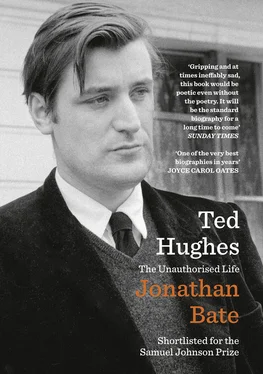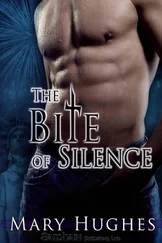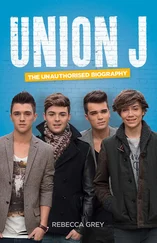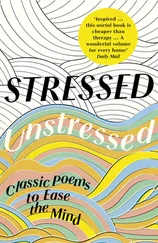He marked his memories of the war by those of another private kingdom, a little further out of town. Nearly fifty years later, he recollected a particular moment: ‘I was looking up into a Holly Tree beside Crookhill Pond (Conisborough) where there was sometimes a tawny owl, and I thought: today is 4/4/44 and I shall never forget this moment. Now I orient all holocaust experiences, all 2nd world war events, by that fixed moment.’24
After the war Gerald left home again. He became a policeman in Nottingham. Then, one day when he was on point duty, he saw a hoarding with a sunny poster and the words ‘Come to Australia’.25 It was advertising a special scheme that provided a cheap (£10) one-way boat ticket on condition that the emigrant stayed and worked for at least two years. Those who went became known as ‘Ten Pound Poms’. There was talk of his little brother following in his footsteps after doing a degree.
Ted had got to know a boy called John Wholey, who was in Olwyn’s class. Though eighteen months apart in age, the two lads were alike in look and temperament: quiet, tall, thin, in love with fishing, shooting and the countryside. In Gerald’s absence, John became a kind of substitute brother. His father was head gardener and gamekeeper on the Crookhill estate near Conisbrough, 3 miles east along the Don. The Wholeys lived in the keeper’s lodge, remote from everywhere other than the big house, which was being used as a sanatorium for men with terminal tuberculosis. Sometimes, when walking in the grounds, Ted would loudly recite poetry to the bemused patients. ‘Eh lad that were posh,’ they would say.26
He introduced his girlfriend Alice to the Wholeys and she eventually married John. Ted, meanwhile, very much liked John’s sister, Edna. He had regularly gone over to Crookhill on Saturdays. Now that he was older, he was allowed to go on Friday nights. ‘Have you come for the weekend?’ Mrs Wholey would ask. ‘Yes, please,’ said Ted. On one occasion, his parents accompanied him, in order to ensure that the arrangement was acceptable: ‘If our Edward misbehaves send him home with a flea in his ear,’ said his mother. He was soon one of the family. At their VE Day party, in the absence of fireworks, Ted and Johnny found some of keeper Wholey’s cartridges and threw them on the bonfire. The explosion made the ladies jump and Mr Wholey angrily banned the boys from using guns for several weeks. In a way, this suited Ted. Something was changing in him, and he lost the urge to hunt and to kill. He rarely shot again. Trap and gun gave way to rod.
The usual pattern was homework first, then fishing. In winter, they made their own rods out of split canes. A nearby pond was stocked with perch, roach and pike. They caught frogs and spiked them on the barbed wire around the pond, but then they would be sorry, so they held animal funerals as atonement. Sometimes they went out without permission in a little rowing boat. Once Ted and Johnny threw in a hedgehog to see if it would swim, but were ashamed and fished it out again, and Ted wrapped it in his jumper and took it home, where they dried it on the kitchen range. Another time, Ted told Edna to close her eyes and he gently placed a dormouse in her cupped hands.
He found an injured owl by the roadside and brought it back to Crookhill. Mr Wholey let him keep it in one of the outbuildings on condition that he cared for it at weekends (the kind keeper looked after it himself during the week). Ted used to sit and talk to it for hours. Sometimes in the small hours of the morning, Mr Wholey would gently wake the boys and Edna so as to take them out to watch badgers at play, before returning for a hot drink and back to bed. Once, under a full moon, they watched hundreds of frogs cross the lane.
He always had a book in his pocket, together with pencil and paper. He would go out in the fields for hours. He and Edna roamed in the woods reciting Longfellow’s Hiawatha , which she had to learn by heart for school. They walked, they talked, they dreamed. Ted would suddenly say ‘Stand still and listen’ and take from his pocket a crumpled page of poetry. They kept the ones that Edna liked best, stuffed others into holes in the tree trunks. He lay with his head on her lap and read to her. After John had left for National Service, Ted continued to go to Crookhill. He walked alone, high from reading verse aloud. ‘I used to sit around in the woods, muttering through my books. I read the whole of The Faerie Queene like that. All of Milton. Lots more. It became sort of a hobby-habit.’27
His earliest surviving letter is to Edna, written when he was seventeen and she had gone off to train as a nurse. He wrote that there were things which held ‘places of high wonder’ in his imagination. Things that ‘posterity may wonder at’, things that when placed before the camera of everyday life ‘invariably shattered the lens, burnt the film and slew the photographer’. ‘I have seen’, he went on, invoking the image of a caged animal that would become a recurring figure in his poetry, ‘things which, when put on public view, slew the unlooking population by the thousand, melted the iron bars which encased it and leaping for freedom, reduced the room which contained it to general matchwood and lumber.’28 Like the jaguar that he would conjure into poetry, Hughes came to hate being ‘put on public view’. But in his imagination he melted the iron bars. Already he is imagining that it will be his vocation to create ‘places of high wonder’ for himself and for readers. Even as a schoolboy, writing half ironically and in full awareness of his own hubris, he wanted posterity to wonder at him. The same thought – voiced with self-mocking boyish arrogance – recurs in another letter to Edna in which he imagines himself as a great poet immortalised in a burial urn in Trafalgar Square.
His favourite fishing place on the Crookhill estate was a large pond, very deep in places. In the ‘Capturing Animals’ talk, he evoked the memory of seeing giant forms on the surface resembling railway sleepers. They were huge pike. His poem ‘Pike’, he said, captured not just a fish but ‘the whole pond, including the monsters I never even hooked’.29 The pond is as deep as England, deep as memory. It is at once his childhood, his unconscious and the spirit of place that made him who he was.
Throughout his life, he remained hooked by the mystique of the pike. They were, he said, ‘fixed at some very active, deep level in my imaginative life’.30 They filled his dreams. If he was feeling good about life, he would dream of giant pike that were also leopards, full of energy, connecting him to the vital forces of the universe. If he was feeling bad, he would dream that the pond of the pike was filled with concrete and bereft of fish. Nothing gave him more pleasure in the Seventies than fishing the loughs of Ireland with his teenage son Nicholas, plumbing the dark, mystic depths for what in a myth-heavy poem he called ‘The Great Irish Pike’.31
At the end of 1968, he and Gerald drove to Mexborough to find the pond. The Wholeys’ lodge was in ruins, its garden entirely overgrown. They went down to the pond and found that ‘it had shrunk to an oily puddle about twenty feet across in a black basin of mud, with oil cans and rubbish’. Ted’s son Nicky made a few half-hearted casts into the dank water. They felt low, despite the presence of Ted’s name carved on a tree as a token of memory. As rain began to fall, Ted made one token cast himself, which he described as ‘a ceremonial farewell’, and there ‘among the rubbish’ he hooked ‘a huge perch’, one of the biggest he had ever caught: ‘It was very weird, a complete dream.’32
Manor Farm is now a gastropub, the Crookhill estate a golf course, the pond of the pike shrunk by mud and reed. The magic landscape survives only in Hughes’s writings.
Читать дальше











